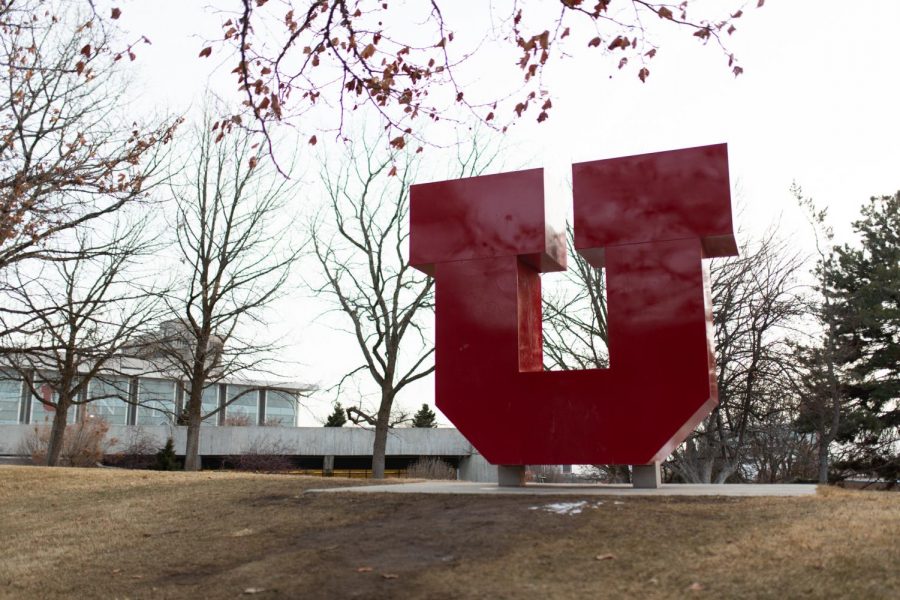U Student Shares Experience Fighting for Accommodations After Injury
Evening on University of Utah campus, Thursday in Salt Lake City. (Photo by Maya Fraser | The Daily Utah Chronicle)
May 1, 2023
When Ashley Olsen, third-year student in biology and psychology at the University of Utah, slipped and dislocated her knee walking on the ramp down to the stadium parking lot, she was expecting to be able to get accommodations to finish out the semester.
Her doctor told her to stick it out for the rest of the semester and then get surgery over the summer. As someone with a chronic knee issue, she said, “I usually get better than this, but this time, it just has not been getting better.”
It happened on Friday, March 24, so she waited until the following Monday to reach out to her professors.
“Some of them were really, really good,” Olsen said. “But from others, the response was overwhelmingly just trying to convince me to drop the course.”
Some professors were able to change assignments so Olsen could complete them more remotely, dropped certain attendance scores or provided extensions.
Even though she had been excelling in the courses and there was a little over a month left of the semester, some professors continued to recommend dropping their course. Some professors mentioned a clause in the syllabus saying that accommodations can’t alter the essential course elements, which Olsen called an “excuse.”
“I feel like they kind of use it as a loophole to get out of whatever they wanted to get out of,” she said.
Some of her professors also told her to come back when she’s “healed.”
“I feel like professors have a lack of understanding that a lot of health issues are chronic, and you won’t be ‘healed’ from a lot of them,” she said.
When she tried to come up with alternatives for things she wasn’t able to do, like long chemistry labs, their response continued to be to convince her to drop the course.
“I didn’t expect to have to fight as much as I did,” she said.
So, she reached out to the Center for Disability and Access on campus to get accommodations. The CDA can provide accommodations related to attendance, exams, deadlines, adaptive technology and more.
She scheduled an intake appointment with whoever was available and hoped they would be able to figure out specific accommodations, letting her professors know. The CDA emailed her professors and asked them to figure out accommodations for Olsen, which she had already asked of them.
“Maybe it’s better for some people but in my experience the only thing that it really did was the CDA was CCed in my emails with the professors where they were trying to convince me to drop the classes,” she said. “It didn’t do anything concrete.”
The CDA was unable to be reached by the Chronicle for comment.
Olsen refused to drop these courses, and was able to figure something out in her chemistry lab where the professor allowed her to come in once to complete all her missed labs.
“So I can only have the risk of coming on to campus one time since as we know a lot of parts on campus aren’t very accessible,” she said. “Especially since I can’t drive or anything at the moment.”
Olsen emphasized that there are many inaccessible parts of campus.
“In terms of the parking lots … many of the buildings I’ve noticed a lot of the buttons you click to open the doors don’t work and then a lot of elevators are dodgy,” she said. “Some of the buildings don’t even really have an accessible way to get in that has no stairs.”
She said, in general, a lot needs to be improved.
“If professors are going to expect us to come to campus when we have issues with mobility and stuff, it needs to be more accessible,” she said.
Olsen said dealing with all of this has been “just as stressful as the actual injury and needing surgery itself.”








